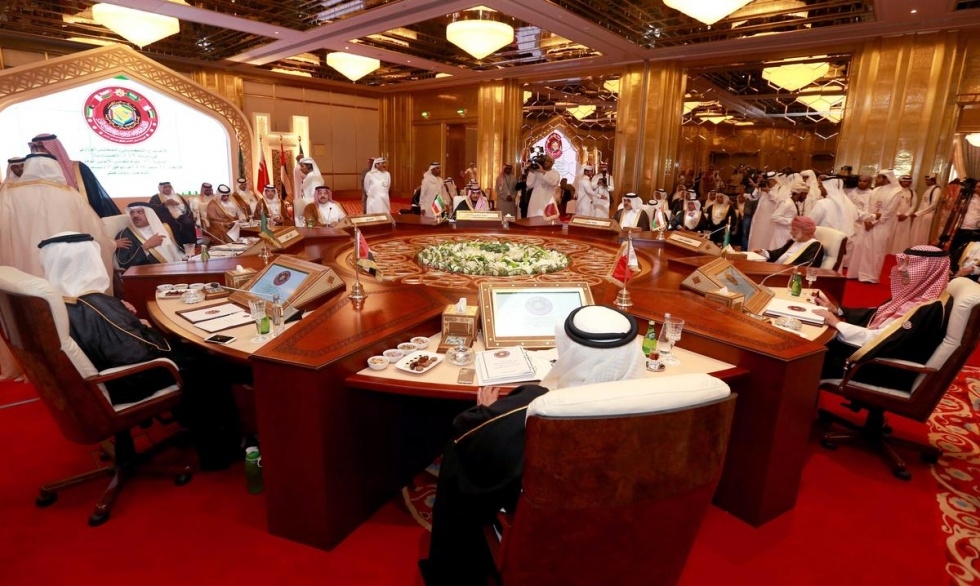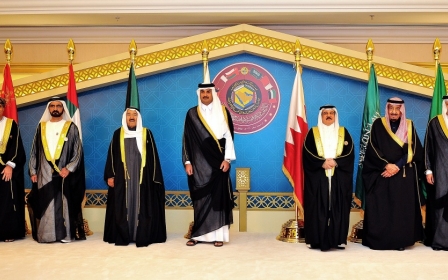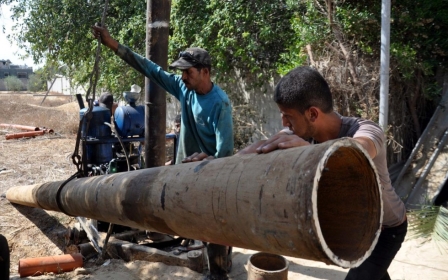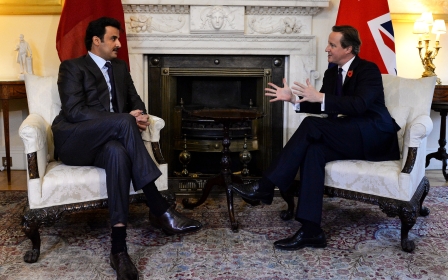Will Qatar's policies change following GCC summit?

Qatar has bowed to political realism by setting aside differences with Gulf neighbours at a summit that reflected a thaw in regional relations, analysts say, but questions remain on how much of its policies Doha will change.
Egyptian President Abdel Fattah al-Sisi's crackdown last year on the Muslim Brotherhood triggered a rift pitting Qatar – who is sympathetic towards the electoral victors in post-Arab spring elections - against Saudi Arabia, the United Arab Emirates and Bahrain, who see the group's political Islam as a threat to their stability.
But leaders of the six-nation Gulf Cooperation Council (GCC) presented a united front at a summit in Doha Tuesday, pledging their "full support to Egypt" and Sisi's political programme.
London-based analyst Abdelwahab Badrkhan said Qatar "made major concessions" on Egypt as well as Libya, where Doha has been accused of supporting Islamists.
There are currently two rival parliaments – and governments – in Libya; one based in the capital Tripoli while the other sits in the eastern city Tobruk.
This change in Qatar's attitude is because of "political realism from one side, and its choice to remain within the GCC on the other," he said.
The pragmatic stance is seen as underscoring Doha's ambitions to become an economic and sporting powerhouse.
Doha had repeatedly denounced former army chief Sisi's ouster of democratically elected president Mohamed Morsi last year.
Sisi allies Saudi Arabia and the UAE have branded the Brotherhood -- now outlawed in Egypt -- a "terrorist" organisation, and the Doha summit was only possible thanks to last-minute Kuwaiti mediation.
In an unprecedented development, Saudi Arabia, the UAE, and Bahrain recalled their ambassadors from Doha in March in protest against Qatar's support for the Brotherhood.
Diplomatic staff returned to Qatar eight months later, paving the way for Tuesday's summit, which Qatar's young new emir, Sheikh Tamim al-Thani, said he hoped would "signal a new beginning for Gulf relations".
At the end of the talks, Gulf leaders also "condemned the control of militias in Libya" and urged "all Libyan parties to support legitimacy represented by the elected parliament," in a reference to the Tobruk-based legislators.
In contrast to the allegations of Qatari backing for the Tripoli-based parliament supporters, UAE warplanes in August carried out strikes against them from neighbouring Egypt.
Since Qatar's regional and international influence rose in the late 1990s, the energy-rich state has been regularly accused of supporting or financing insurgent movements.
'Formal concessions'
Experts said Qatar is not expected to sever ties with the Muslim Brotherhood and other Islamists, who have many supporters within the Arab world.
But it could limit the impact of the support on its political and economic interests, as well as its sporting ambitions.
For now, Qatar's policy does not seem to have radically changed. This is reflected by Doha-based Al-Jazeera news channel, whose editorial line still appears to sympathise with Islamists.
"Qatar could have made formal concessions to save the summit and joined (official) statements. But this does not (necessarily) reflect a change in its policy," a Gulf official told AFP on condition of anonymity.
"The coming months will tell whether Qatar has really changed its policies, or if it is unwilling, or maybe unable, to change," he said.
Badrkhan said the concessions made at the summit do not mean that Qatar will break its relationship with the Brotherhood.
But Doha "does not want its ties with political Islam to undermine its regional and international relations, as it has big political and sporting ambitions that have seen setbacks," he said, referring to a campaign of criticism sparked by Qatar's hosting of the 2022 World Cup.
Qatar also holds the world's third-largest natural gas reserves.
Doha has already asked several Brotherhood leaders to leave and Sheikh Yusuf al-Qaradawi, whose speeches have angered the UAE, no longer appears on Al-Jazeera, where he was a frequent guest.
But Doha is still providing shelter for many others, especially those who escaped a crackdown on the Brotherhood in Egypt.
Kuwaiti political analyst Ayed al-Manaa said Qatar "chose to remain within the GCC where it has interests."
"But we must not quickly draw conclusions" because "Egypt must also make steps towards Qatar," he said.
New MEE newsletter: Jerusalem Dispatch
Sign up to get the latest insights and analysis on Israel-Palestine, alongside Turkey Unpacked and other MEE newsletters
Middle East Eye delivers independent and unrivalled coverage and analysis of the Middle East, North Africa and beyond. To learn more about republishing this content and the associated fees, please fill out this form. More about MEE can be found here.




